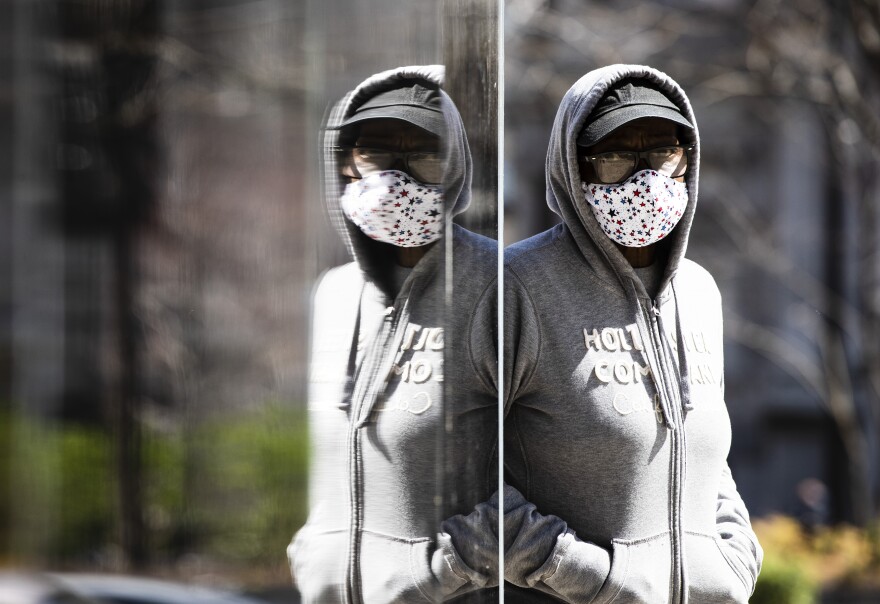On today’s episode of The Confluence:
Mask mandates are lifting on transit and travel, but one public health expert says that’s not completely advisable
(0:00 - 7:27)
A mask mandate was reinstated Monday in Philadelphia, while airlines and transit authorities have dropped theirs after a U.S. District Judge in Florida tossed out the federal government's transportation mask mandate the same day.
With vaccines widespread, and new variants expected to crop up, what factors should officials consider in reinstating a mask mandate?
“Cases have just started to kind of rise a couple of weeks ago, and I think by not having to wait until hospitalizations start coming, we can actually avoid those hospitalizations in the future,” says Dr. Usama Bilal is an assistant professor of epidemiology and biostatistics at Drexel University’s Dornsife School of Public Health. “We also need to keep in mind that masks are very low risk in intervention, and this actually reduces the likelihood of having to adopt more restrictive measures in the future.”
Bilal says relying on personal responsibility, letting people decide for themselves if they want to mask or social distance, is not a good strategy because it ignores people who are immunocompromised, or lack resources like paid sick leave.
His advice for municipalities without a current mask mandate?
“Get one going in case cases start going up. Once they start going up? Get it going.”
Pittsburgh lost more Black homeowners than white homeowners from 2010 to 2019
(7:32 - 17:27)
A new report from the Pittsburgh Community Reinvestment Group (PCRG) shows Black homeownership in the city is declining, amid rising home values. The report found from 2010 to 2019, the rate of Black homeownership in Pittsburgh dropped from about 37% to 30%. These numbers are lower than the average rate of black homeownership nationwide.
“It has to do with, I believe, some with rising cost in the home buyer's market,” says Jerome Jackson, PCRG’s board president, and executive director of the Operation Better Block. “Also, you know, banks aren't lending in minority communities… I’m not saying that all banks, there are programs, but not enough programs.”
The data is from the U.S. Census Bureau, which sometimes takes a while to be published. John Boyle, research analyst with PCRG, says when more recent data comes out, including years in the pandemic, he anticipates a further drop in Black homeownership.
"It is unfortunately very possible that this is going to get worse, especially with some of the trends we've seen in lending data,” says Boyle. “Homeownership is just one aspect of it. But once you get in the home, are you able to use that?”
The report recommends policies like raising the minimum wage and increasing the city’s availability of affordable housing in an effort to reverse this trend.
A new tattoo museum highlights the early iterations and styles of the body art
(17:33 - 22:30)
American tattooing started on the arms of sailors and circus performers. Today, you can see them on teachers and doctors.
90.5 WESA’s Kiley Koscinski reports Pittsburgh’s newest museum is designed to preserve and share the history of tattooing.
The Pittsburgh Tattoo Art Museum is open Thursdays through Sundays from 11 a.m. to 6 p.m. Admission is free, but a recommended $5 donation goes toward preserving and restoring the collection.
The Confluence, where the news comes together, is 90.5 WESA’s daily news program. Tune in Monday to Thursday at 9 a.m. and 7:30 p.m. to hear newsmakers and innovators take an in-depth look at stories important to the Pittsburgh region. Find more episodes of The Confluence here or wherever you get your podcasts.






